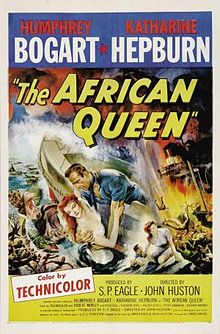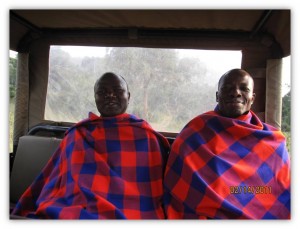One of my failings is a love of history. My friend Mr. Ravi in India asked me once how I knew so much about the slang and the people of India and my answer was history. I learn an awful lot of history from historical novelists like C.S. Forester, Patrick O’Brien, Bernard Cornwell, and, I am a little ashamed to admit, George MacDonald Frasier. You can learn more real history from a fictional story like “Flashman on the March” than a lot of highly regarded classical histories.
I never knew for instance, that World War 1 was fought in Africa and not just the fields of France and Germany until I read Forester’s fictional “African Queen”, and of course saw the delightful movie of the same name.
The reality of the war of course took a great toll on the lives of real Africans who died by the hundreds as porters and scouts and workers as the British tried to drive the Germans out of East Africa.
Jump ahead a few decades and my enjoyment of Issac Dinesens great book, “Out Of Africa”. Karen Blixen is the real life baroness who lived on a farm in the Ngong Hills just outside of Nairobi. The story is told through the devise of her love afair with the hunter Denys Finch Hatton, and the great artifice of the story is his love of the nomadic life of the Maasai and their independant warrior tradition and her love of the more settled tribes that cared for her farm. As Wikipedia relates ”
Denys’s upcoming death in a plane crash is foreshadowed in this film by the tale of Maasai people who reportedly would always perish in captivity. At his Christian funeral in the Ngong Hills, as Karen prepares to toss a handful of soil into the grave in the European ceremony, she hesitates and cannot do it, then she turns away from the other Europeans, and instead, she brushes her hand through her hair, as is the African custom. With Denys gone, the head servant, Farah, takes Karen to the station, for the train to Mombasa. Settled back in Denmark, she receives a letter from a friend, “The Maasai have reported to the District Commissioner at Ngong, that many times, at sunrise and sunset, they have seen lions on Finch-Hatton’s grave” in the Hills. She supposes that Denys would have liked that, “I must remember to tell him.” She never returned to Africa.
One of the more intriguing parts of the story is how the British were divided as to whether of not to arm the Maasai, who although they are Pastoralists (care for flocks and herds) are also considered to be rather fierce warriors. The argument ends concerning the arming issue with a simple question – “when this war is over, who is going to disarm them?’ That almost mystical regard for Maasai has been a part of all of my trips to Africa. I am always fascinated when I see them walking down the roads in their red and blue checked robes and their spears and rungo clubs. It never ceases to amaze me that I can get out on a lonely road not seeing anyone near in any direction and turn around and a Maasai is standing nearby as if to protect his historic claim on the land.
Hence the weird experience. The February trip with the two District Presidents was, at least for me rather exhausting. The last couple of days were to be spent in the Mara looking at animals and unwinding. We got up before sunup to take a landrover out onto the plain and it was a chilly morning. The driver offered me a cup of boiled milk and coffee and a blue and red checked blanket to keep the chill off. Being a “macho” kind of guy I declined the blanket but ran for the front seat of the land rover because it is the most comfortable spot. As I approached the landrover this is what I saw and I will go to my grave believing this is what I saw – two warriors in full blue and red checked robes. They had the “eremet sero”, or leaf bladed long spear and the spears were painted white which meant they were prepared for war. They each carried a rungo (club) and each of them had beaded head bands and looped copper ear rings. They stared straight ahead and never acknowledged that I was getting into the vehicle. Thinking that they were being transported to some remote village I settled into my seat a bit worried about the significance of a war lance but I settled in nonetheless. One of the fellow travelers came along and said “did you see the Maasai guys in the back seat?” and I whispered back as fiercely as I could, “yes and be quiet about it”. About a half and hour later while everyone was laughing they asked if I wanted to meet the Maasai guys. Here is what I saw –
David Chuchu and my friend Richard (sorry Richard I can’t remember your last name). No spears, no clubs, no jewelery – just two guys that were cold. I will never forget that morning – it truly was a strange thing and of course everyone thought it was hilarious, but it was still strange.
Anyway that’s David on the left. We will get out an itinerary soon of where David will be in North Dakota and Minnesota. I’m pretty sure he left his spear at home.



